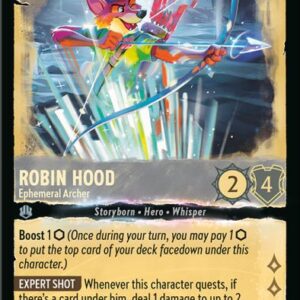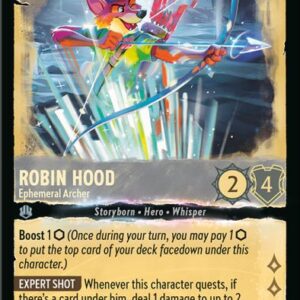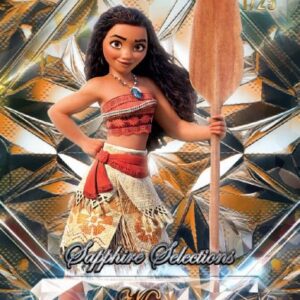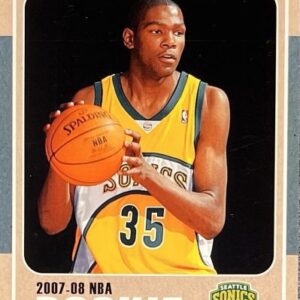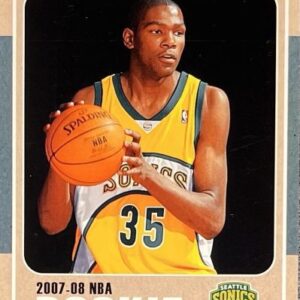In a spectacle that would have thumbs twitching with sticker-sticking nostalgia, a box of 1967 Wacky Packages made headlines when it sold at Heritage Auctions for a jaw-dropping $79,300. Smashing its previous record of $63,084 set in 2022, the sale reflects the escalating craze for rare non-sports collectibles that are captivating collectors and pop culture aficionados alike.
Wacky Packages first burst onto the scene in 1967, courtesy of the imaginative minds at Topps. These parody sticker sets quickly became a cultural phenomenon, taking a playful swipe at popular grocery brands through whimsical, cartoon-inspired designs. The original stickers were punch-outs, designed to be licked and affixed to any surface the heart desired—an activity that became a legacy hobby for many children of the era.
At the heart of Wacky Packages’ allure was their irreverent sense of humor, crafted with artistry and satire. Notably, this series featured the budding genius of Art Spiegelman, who would later achieve literary fame with his Pulitzer Prize-winning work, Maus. This level of artistic pedigree added an unexpected touch of gravitas to these stickers and certainly hasn’t hurt their desirability.
However, as the saying goes, there’s no pleasure without drama. The original release was not without controversy. The cheeky parodies caught the eyes and ire of some major brands—namely, icons like Ritz Crackers, Jolly Green Giant, Morton Salt, and 7-Up—who were none too pleased with their personas being skewered in sticker form. Legal action swiftly followed, compelling Topps to reconfigure the lineup, replacing twelve cards and expanding the set from 44 to 56 cards. Rather than being thwarted, Topps fueled the fire by introducing “Wacky Ads” in 1969, and making a triumphant return in 1973 with peel-and-stick versions. It wasn’t long before these stickers became as ubiquitous in schoolyards as baseball cards.
Despite a hiatus between 1992 and 2004, Wacky Packages have had multiple resurgences, nudged along by a devoted fanbase and a growing marketplace for pop culture memorabilia. The continued appeal of these stickers lies in their blend of humor, nostalgia, and art, a potent trifecta that resonates deeply with collectors today.
Heritage Auctions’ record-breaking sale isn’t just a windfall for the consignor; it’s a resounding signal that vintage non-sports cards and unopened box sets are more than just novelties. They hold a storied place in the tapestry of our collective pop culture history, representing a time when simplicity and imagination reigned supreme in children’s play.
This vibrant market is fueled by collectors who seek not just historical artifacts but pieces that evoke distinct memories and emotions. It’s a pursuit of nostalgia wrapped in the playful charm of objects like Wacky Packages, which, while parodying brands, have themselves become icons worthy of the spotlight.
A sale such as this does more than cement the status of Wacky Packages as a collectible powerhouse; it also beckons a new generation of enthusiasts to explore and appreciate non-sports cards. As mainstream interest spikes, the nuanced artistry and humor of these cards have an opportunity to shine brighter than ever.
For collectors and aficionados who perhaps once peeled and stuck these stickers on school binders or lunchboxes, today’s auction news is not just about financial appreciation. It’s a testament to the ongoing resonance of playful, creative expression, even amidst a tech-driven world where nostalgia often fuses seamlessly with contemporary culture. In this way, Wacky Packages echo the sentiments that in many ways set the stage for today’s meme culture—quick wit, whimsicality, and a touch of rebellious spirit.
As Heritage Auctions records another hallmark moment in the collectible world, the air hums with a promise. The promise that while our world may zoom forward at lightning speed, the artifacts of our past—once the laughter-inducing playthings of our younger selves—still possess the power to capture imaginations. They underscore the simple joy of collectibles, not just in their monetary worth, but in their capacity to bridge the past with the present, sprinkling a bit of humor on the path of a future informed by both.

